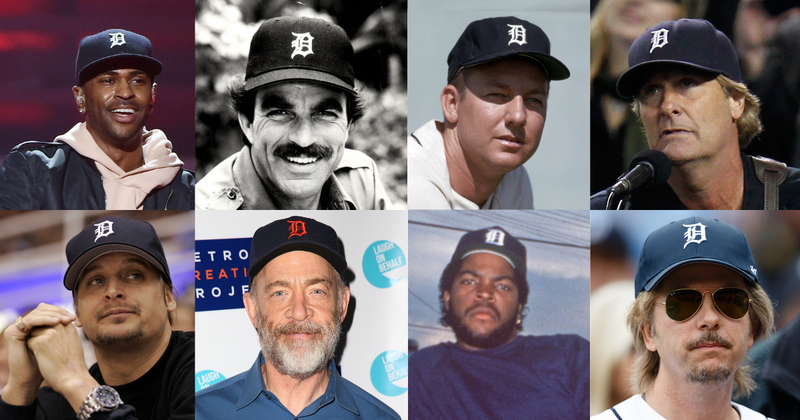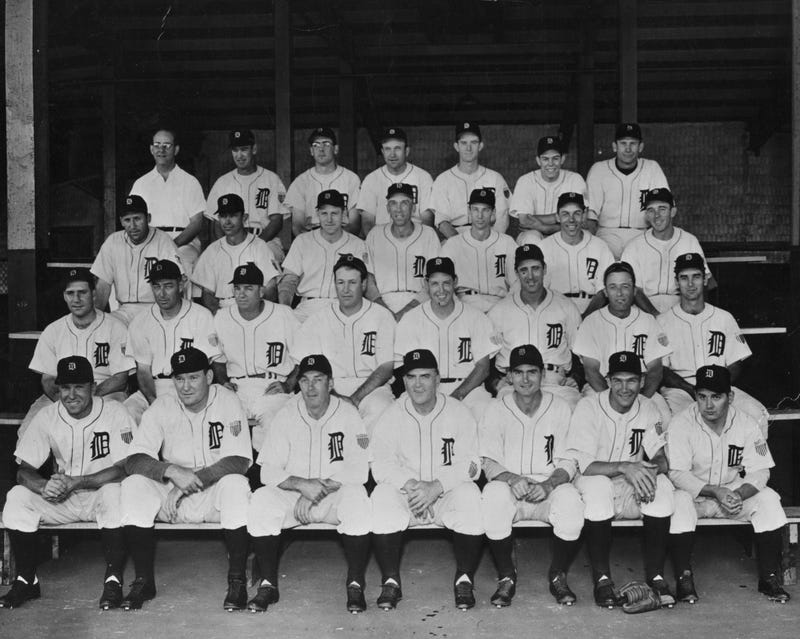
Today's Daily J originally aired in April. Enjoy this special "best of" edition of our daily news podcast, and remember to text WWJ to 20357 to get the Daily J delivered to your phone for free. And be sure to subscribe! Msg and data rates apply.
---------------------------------------------------------------
DETROIT (WWJ) -- There are no lack of iconic logos among Detroit’s many historic sports franchises.
The Red Wings, Lions and Pistons all have their fair share of identifiable imagery, which has often been changed or updated through the years (lest we forget those controversial teal Pistons jerseys from the '90s.)
But it’s the Detroit Tigers’ mainstay — the “Old English D” — that really stands the test of time, having transcended its status as team logo to become an all-encompassing symbol of Detroit pride.
So how exactly did that happen?
In this episode of The Daily J podcast, WWJ’s Zach Clark explored the deep roots of the “Old English D,” and the way in which it cemented its place in Detroit history.
The first appearance of the Old English D dates back to the 1800s when it was used by the National League’s Detroit Wolverines as early as 1881.
Though the Wolverines were dissolved in 1888, the logo proved it had staying power, and was adopted by Detroit’s team in the Western League soon afterwards.
However, when Detroit made the transition to the American League in 1901, the logo was dropped for a period of time while the team played around with other styles, including a block D and the outline of a Tiger.
By 1904, the Old English D had returned, but its journey still wasn’t over.
Appearing sporadically over the next three decades, the logo was finally made permanent in 1934, possibly due to the team’s growing success.
That same year, the Tigers won the American League pennant, and then followed that up with their first World Series win in 1935.
In the decades that followed, the Old English D came to represent not only the Tigers, but the city of Detroit as a whole, becoming a frequent symbol of civic pride.
This could be attributed to several factors, including the fact that the Tigers are Detroit’s oldest sports franchise.

Beyond that, baseball historian Gary Gillette told Daily J host Zach Clark the popularity of baseball far surpassed other sports for decades in America, meaning that the D logo had plenty of time to reach icon status without much competition.
“Prior to the ‘70s, baseball was king,” Gillette said. “Now, since football has pulled away as the most popular sport, you still have that logo…the D equaling Detroit is easier than a leaping lion equaling Detroit. It became synonymous with the city”
Gillette added that fans' propensity to wear hats to support their favorite team was fairly specific to baseball for several decades before other sports began following suit, meaning the Tigers' D logo was front-and-center for Detroit enthusiasts.
“...Baseball fans tend to wear their caps everywhere, and until the ‘80s or ‘90s, you didn’t see football fans wearing their football team’s baseball caps everywhere," Gillette said.
Along with the iconic Tigers players who have donned the Old English D through the years, there have been a slew of celebrities who have helped usher it into popular culture, including Big Sean, Ice Cube, Kid Rock, Tim Allen and Tom Selleck, among others.
In fact, Selleck’s habit of wearing a Detroit Tigers hat while portraying Thomas Magnum on the ‘80s TV show “Magnum P.I.” became so iconic, the hat is currently being displayed in the Smithsonian in Washington D.C.
With over 130 years under its belt, the Old English D has certainly earned its place as one of Detroit’s oldest traditions, even predating Henry Ford's invention of the Model T and the "Motor City" moniker.
Indeed, it has become a symbol of resilience and strength within the city and across the world, and there’s no doubt the D is here to stay.


